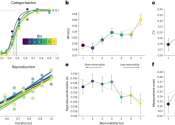NASA trains machine learning algorithm for Mars sample analysis
When a robotic rover lands on another world, scientists have a limited amount of time to collect data from the troves of explorable material, because of short mission durations and the length of time to complete complex experiments.









